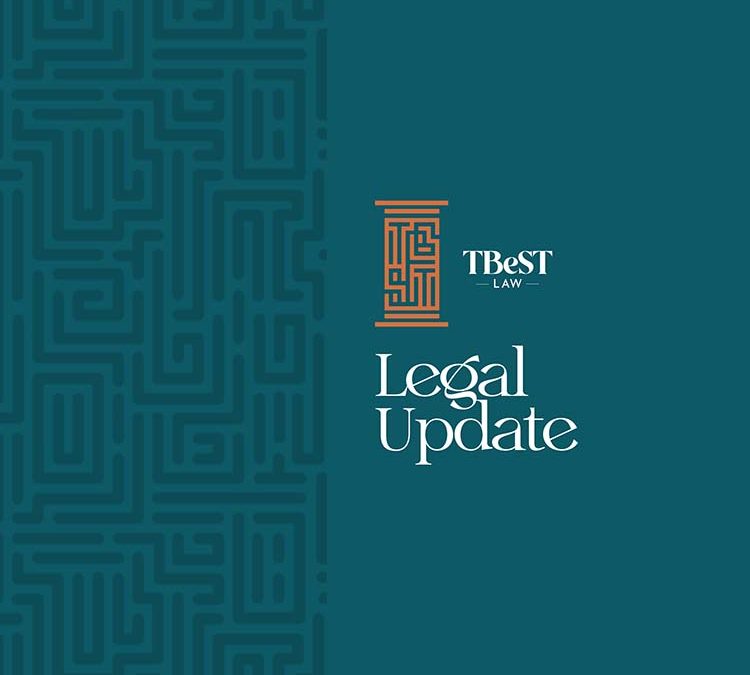Navigating the Green Directive: Frequently Asked Questions
Introduction
The recent directive from the National Bank of Ethiopia signifies a major shift towards adopting a market-based exchange rate system, reflecting a broader trend observed in developing countries.
The National Bank of Ethiopia (NBE) has introduced a new directive on foreign exchange, commonly referred to as the “Green Directive” officially known as Directive No. FXD/01/2024, this regulation aims to overhaul the country’s foreign exchange system and streamline currency-related activities. The Green Directive represents a significant shift in policy, providing clear guidelines on permissible and restricted transactions.
Q- What is the scope of the new directive?
The Green Directive is generally a consolidation of all directives relating to foreign exchange with few but significant amendments.
The new Directive comprehensively governs all foreign exchange transactions. It covers a wide range of activities, including the purchase, sale, transfer, borrowing, lending, assignment, exchange, receipt, payment, or crediting of foreign exchange. This also extends to any contract, agreement, arrangement, or understanding that facilitates these activities, whether conducted within or outside Ethiopia.
The Directive permits all foreign exchange purchases and cross-border payments for current account transactions unless explicitly restricted. However, it imposes limitations on capital account transactions, except where specific exemptions are granted.
Q. What are the key updates made by the Green Directive
1. Foreign Exchange Market Participants and Operations
A key update in the new Green Directive is the shift to a market-based exchange regime. Under this system, banks are now permitted to buy and sell foreign currencies to their clients and among themselves at freely negotiated rates. The National Bank of Ethiopia (NBE) will make only limited interventions, stepping in primarily to support the market in its early stages or in the event of disorderly market conditions.
Banks play a crucial role in this new framework. They must obtain authorization from the NBE to operate foreign accounts and hold foreign exchange, with specific limits outlined in the Directive. Banks are responsible for issuing permits for trade-related transactions and must adhere to restrictions on engaging in forward exchange transactions. They are also limited to holding only easily convertible foreign currencies unless specifically approved. Furthermore, banks are prohibited from investing in foreign-denominated shares, stocks, and bonds or from entering into foreign loans or guarantees without authorization.
Compliance with these regulations includes the development of an Internal Foreign Exchange Policy Manual, which must be reviewed regularly by internal audit functions.
The inter-bank foreign exchange market is the primary platform for banks to trade foreign exchange among themselves. Participation in this market is restricted to entities authorized by the NBE, and all participants must adhere to a set of guidelines and a code of conduct.
For foreign exchange rate determination, banks and authorized dealers have the autonomy to set their own rates for transactions. These rates must be reported to the NBE daily, which then compiles and publishes an Indicative Daily Exchange Rate. This rate serves as a reference for transactions on the following business day.
A notable change in the Directive is the elimination of the requirement for commercial banks and exporters to surrender their export earnings to the NBE. Exporters are now allowed to retain 50% of their export earnings in foreign currency, up from the previous 40%. This foreign currency can be retained in a retention account for up to 30 days before being sold to the transacting bank at a freely negotiated exchange rate.
2. Introduction of Non-Bank Foreign Exchange Bureaus
In a notable expansion of the foreign exchange market, non-bank entities, including independent foreign exchange bureaus, are now permitted to participate in specific market segments. These entities can buy and sell foreign currency notes, provided they have obtained the necessary authorization from the National Bank of Ethiopia (NBE). The Directive sets forth detailed regulations governing the operations of these non-bank participants, ensuring they comply with the same standards and guidelines that apply to traditional banking institutions.
Foreign exchange bureaus can function either as specialized windows within banks or as independent (non-bank) entities. Bank-based foreign exchange bureaus are required to comply with specific regulations outlined in the Directive. These requirements cover various aspects, including licensing, security measures, processing procedures, nomenclature, staff obligations, transaction protocols, exchange rate determination, and the display of exchange rates.
3. Removal of Import Restrictions
In response to a critical foreign exchange shortage, the FDRE had previously restricted foreign currency approval for 38 product categories considered luxury items. This restriction, issued in a circular by the Ministry of Finance to the National Bank of Ethiopia (NBE) in October 2022, covered items such as packaged food, household goods, furniture, beauty products, automobiles, and various types of liquor. These restrictions were imposed to prioritize the limited hard currency for essential imports, such as medicines, agricultural inputs, capital goods, and raw materials for local industries.
This restriction significantly impacted businesses involved in the importation, wholesaling, and retailing of these products, leading to dissatisfaction among the business community and consumers, particularly concerning food commodities.
The newly introduced Green Directive lifts the restriction on the aforementioned items allowing the resumption of foreign currency approvals under the new foreign exchange regime. Such restriction, however, was extended in relation to completely built-up (CBU) fuel-powered automobiles and three wheelers categorized under Tariff Heading 8703 of the Harmonized System Code the next day by the Ministry of Finance.
4. Exports, Imports, and Services
Banks play a key role in facilitating the export and import of goods. For the export of goods, they are responsible for issuing export permits, with the exception of gold, which requires approval from the National Bank of Ethiopia (NBE) upon submission of the necessary documentation.
Banks must ensure that export proceeds are repatriated into Ethiopia. Acceptable payment methods for exports include Letters of Credit, Cash against Documents, Advance Payments, consignment sales, and Open Accounts for e-commerce and specific transactions approved by the NBE.
Similarly, for the import of goods, banks issue import permits upon receiving the required documentation from importers, ensuring that payments align with the agreed mode of payment.
A notable update in the directive is the liberalization of Franco-Valuta imports, which allow the importation of goods without using foreign exchange resources from the banking system, provided they comply with relevant regulatory standards.
Previously, it was a limited list of individuals and entities that were allowed to import items under a Franco-Valuta basis in accordance with the Council of Ministers Regulation No. 88/2003 and Ministry of Revenues Directive No. 66/2004 (as amended). In addition, in April 2021, the Ministry of Finance (MoF) had permitted the use of the Franco-Valuta scheme for importing only basic commodities without requiring verification of the hard currency’s source, to counter inflation and increase the importation of essential goods. However, the government reversed this decision within a year, mandating that importers disclose the source of their hard currency to the NBE.
Under the new directive, the restrictions on Franco-Valuta imports have been removed. This change will soon be implemented through an upcoming regulation, potentially easing the importation process and further integrating these imports into the formal economy.
5. External Loans
The Directive maintains many of the requirements on external loan but introduces two new issues:
– Expansion of eligible borrowers to include construction sector companies;
– removal of the all-in-cost ceilings for external loans, which included the rate of interest, other fees and expenses in exclusion of commitment and pre-payment fee, was previously set to a maximum of six month SOFR/ESTR/SONIA plus 5%.
All loan agreements with external creditors must still be preapproved and registered by the NBE.
6. International Remittances
Banks and Authorized Remittance Service Representatives are eligible to offer international remittance services in collaboration with International Remittance Service Providers (IRSPs). Authorized Remittance Service Representatives may include entities such as the Ethiopian Postal Service, telecom companies, and other approved organizations. These entities must use correspondent accounts for remittance services and secure prior approval from the National Bank of Ethiopia (NBE) for their remittance service contracts.
7. Payment Instruments
Authorized banks may issue international debit or prepaid cards if they have agreements with international payment card networks. These banks must fulfill specific conditions, including installing card personalization terminals, establishing secure telecommunications infrastructure, and ensuring that the card’s validity does not exceed two years.
Local merchants and entities that wish to accept international credit or debit cards must have agreements with authorized banks and adhere to licensing conditions. They are required to maintain transparent payment processes and handle foreign currency cash notes according to established guidelines.
Additionally, local merchants and entities must verify the authenticity of foreign currency and payment instruments, maintain detailed customer records, and convert foreign currencies collected into local currency within two business days. They must clearly display applicable exchange rates and ensure compliance with regulations set by the National Bank of Ethiopia (NBE). For online payments, merchants are required to establish clear settlement arrangements with authorized acquiring banks and submit the relevant agreement documents to the NBE.
8. Foreign Currency Accounts
The new directive establishes a clear framework for the creation and management of foreign currency accounts, outlining eligibility criteria, documentation requirements, permissible uses, and transitional provisions for existing accounts. It simplifies the rules governing foreign currency accounts, particularly those held by foreign institutions, foreign direct investment (FDI) companies, diplomatic missions, and individual Ethiopians and foreigners. The directive also sets out specific provisions for non-governmental organizations (NGOs), local contractors of international organizations, importers, exporters, and private foreign currency holders.
9. Foreign Currency Account of NGOs
Previously, Foreign NGOs were restricted to maintaining non-transferable accounts, limiting their financial flexibility. Unlike a foreign currency account, non-transferable accounts allow Foreign NGOs to accept their funds in USD but will be converted to Ethiopian Birr as soon as it hits their accounts in Ethiopia. However, the new Directive has introduced two major changes aimed at easing these restrictions and enhancing the operational freedom capabilities of Foreign NGOs.
Under the new Directive, Foreign NGOs are now allowed to open foreign currency accounts. This change permits Foreign NGOs to hold and manage funds in foreign currencies, providing greater flexibility in managing international donations and transactions. This is expected to enhance the financial operations of Foreign NGOs, enabling them to better support their activities and projects.
The new Directive also allows Foreign NGOs to use these accounts for all foreign payments without any restriction. This offers significant operational advantages, allowing Foreign NGOs to seamlessly handle international transactions and payments. This increased flexibility is crucial for Foreign NGOs as they rely on foreign donations and need to make payments in foreign currencies for their various projects and operations.
Another significant change brought about by the new Directive is the streamlining of the account opening process. Previously, Foreign NGOs were required to obtain approval from the National Bank of Ethiopia (NBE) before opening an account. This process was often lengthy and cumbersome, creating delays and operational inefficiencies.
The new Directive simplifies this procedure by designating authorized banks to open foreign currency accounts for Foreign NGOs. As a result, Foreign NGOs can now directly approach the bank of their choice to open a foreign currency account, bypassing the need for prior approval from the NBE. Foreign NGOs are required to provide the bank with a support letter from Authority for Civil Society Organizations (ACSO) and other documents as may be requested by the bank. This change is expected to expedite the account opening process and reduce administrative burdens for Foreign NGOs.
Q. Are there any changes on the Limits on Foreign Currency holding
The Directive relaxes rules on the amount of foreign cash travelers can carry and stipulates specific time limits for holding and converting foreign currency for individuals entering the country. For the sake of clarity, we have outlined below the amount limits for the respective categories:
i. Birr Holding Limit for Persons Entering or Departing Ethiopia
- General Limit:
- Up to Birr 3,000.00 per travel.
- Travel to Djibouti or Neighboring Port Cities:
- Up to Birr 10,000.00 per travel.
ii. Time Limit for Holding and Conversion of Foreign Currency
- Residents of Ethiopia:
- Convert or deposit foreign currency within 30 days.
- Customs declaration required for amounts exceeding USD 10,000.
- Foreign Nationals of Ethiopian Origin / Ethiopian Nationals Not Residing in Ethiopia (Staying >90 days):
- Deposit foreign currency within 90 days.
- Customs declaration required for amounts exceeding USD 10,000.
- Foreigners Not Residing in Ethiopia:
- Hold foreign currency up to the visa validity period.
- Residents of Ethiopia (Purchased Foreign Currency):
- Convert foreign currency within 30 days from the date of bank advice.
iii. Customs Declaration of Foreign Currency
- Amounts Exceeding USD 10,000:
- Declare upon entry to Ethiopia.
- Amounts Not Exceeding USD 10,000:
- No declaration required upon entry.
- Transit Passengers:
- Exempt from foreign currency declaration.
iv. Permissible Amount of Foreign Currency for Travel Abroad
- Residents of Ethiopia:
- Carry foreign currency with bank advice issued within 30 days.
- Non-Resident Foreign Nationals of Ethiopian Origin / Ethiopian Nationals Not Residing in Ethiopia:
- Carry foreign currency with bank advice issued within 30 days.
- Carry foreign currency re-entered within 90 days, with customs declaration for amounts exceeding USD 10,000.
- Embassy Employees, Temporary Workers, Workshop Participants:
- Carry foreign currency exceeding USD 10,000 with appropriate documentation.
v. Other Foreign Currency Holding
- Land Transport from Neighboring Countries:
- Declare amounts more than USD 500 at border customs.
- Present customs declaration for travel abroad with declared amount.
Q. Does the Directive remove prohibitions on holding and transacting in Forex
There has been some confusion among the public, with a belief that it is now permissible to hold foreign currency freely. However, this is not the case. The new directive from the National Bank of Ethiopia, alongside Article 346 of the FDRE Criminal Code, imposes strict prohibitions and criminal penalties concerning foreign currency. The directive specifically forbids the transfer, payment, or holding of foreign currency in cash without prior authorization from the National Bank. It also bans any cash transactions in foreign currency within Ethiopia, except for those explicitly permitted by the National Bank. Article 346 of the FDRE Criminal Code further criminalizes unauthorized dealings in foreign currency, including buying, importing, exporting, accepting, depositing, exchanging, selling, or offering for sale without proper authorization. Violations of these laws can lead to rigorous imprisonment of up to ten years, fines up to fifty thousand Birr, and the confiscation of the foreign currency involved. These regulations are in place to control and manage the use of foreign currency within the country effectively.
Legal Disclaimer: The information provided in this update is for general informational purposes only and does not constitute legal advice. This update reflects the current legal landscape as of the date of publication, but laws and regulations are subject to change. Readers should not act or refrain from acting based on the content without seeking professional legal advice specific to their circumstances. No attorney-client relationship is established by reading or responding to this post. For personalized legal guidance, please contact our team of experienced lawyers


